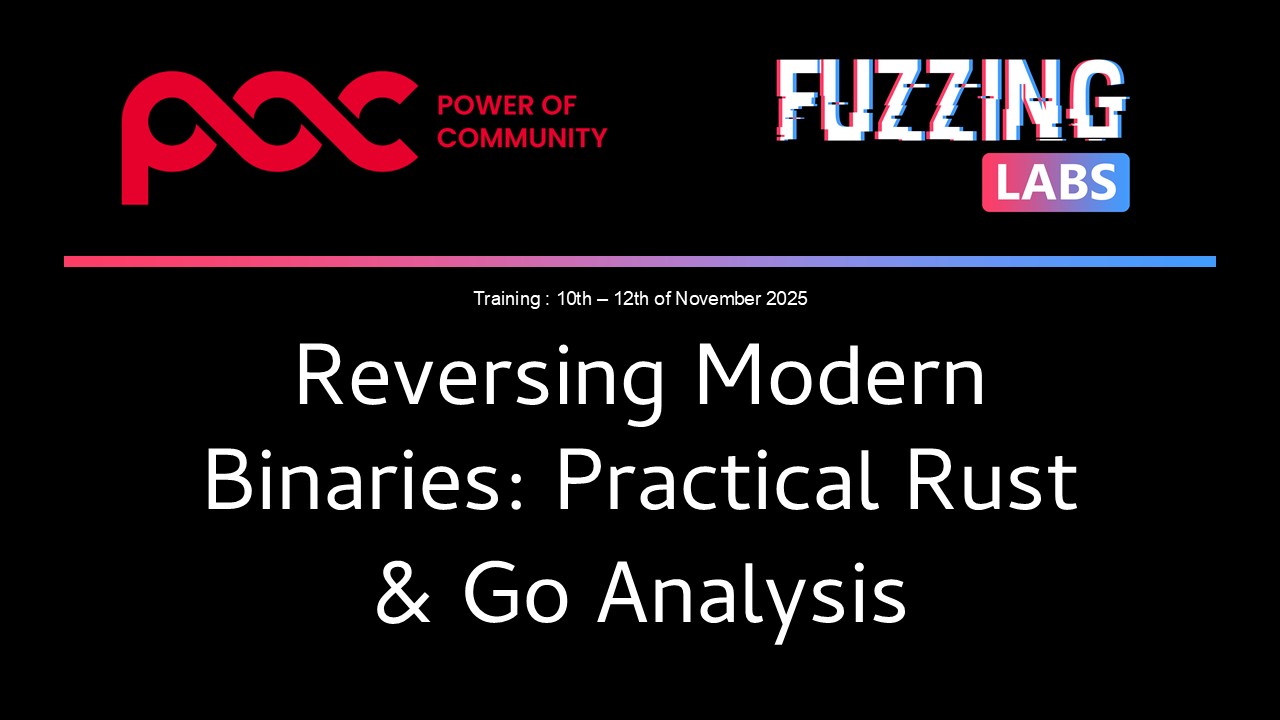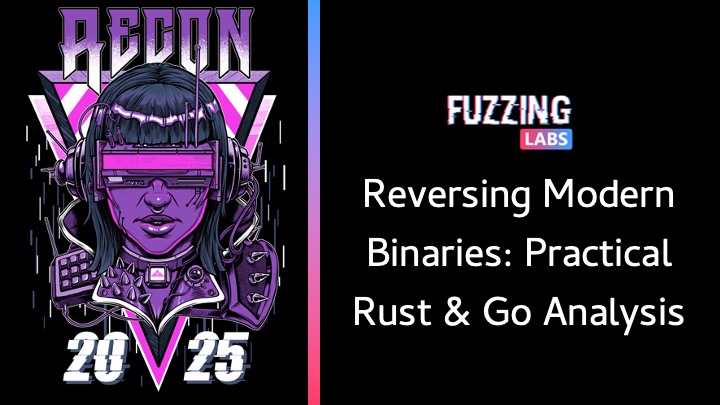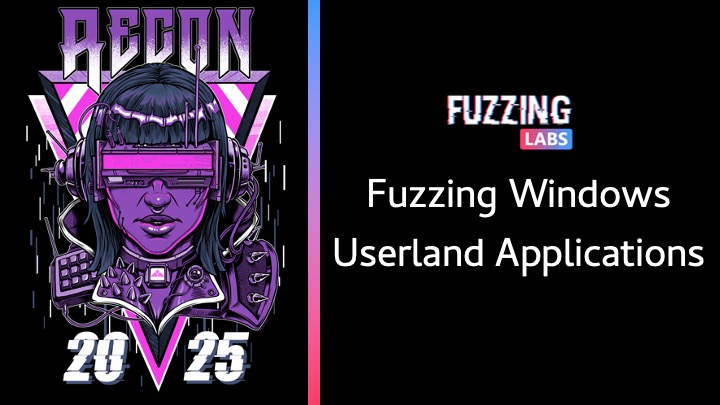Looking for our live trainings ? Find out where you can join us here
ADVANCED SECURITY & FUZZING TRAININGS
Join the top security engineers in mastering vulnerability discovery and secure coding with our tailored learning paths. Learn from top experts with hands-on exercises, flexible schedules, and real-world applications. Earn a completion badge to showcase your achievement upon finishing the training.
Your custom training experience

Live Training
(Teams)
Immerse yourself in an engaging, hands-on learning environment with live, in-person training sessions. Work directly with expert instructors and collaborate with peers to solve real-world problems in real time.
Why It’s Worth It:
-
Get personalized feedback from experts.
-
Stay focused with a structured learning setup.
-
Collaborate with like-minded professionals.
-
Master practical skills through hands-on interaction.

Flexible Learning
(Individual or Teams)
Learn at your own pace with our flexible e-learning platform. Access curated video lessons, hands-on exercises, and expert resources anytime, anywhere, tailored to fit your schedule and learning style.
Why It’s Worth It:
Learn anytime, anywhere, on your schedule.
Revisit lessons as often as you need.
Balance learning with work or personal life.
Explore content at your own pace.
Unlock your next skill
Practical Web Browser Fuzzing
Rust Security Audit & Fuzzing
Go Security Audit & Fuzzing
Fuzzing Windows Userland Applications
Practical Network Fuzzing
Rust Development for Cybersecurity
WebAssembly Reversing and Dynamic
Rust Embedded Security
Our Learning Paths & Trainings
- Rust Development for Cybersecurity
- Reversing Modern Binaries
- AI, ML & LLM for Reversing
- WebAssembly Reversing and Dynamic
What our Students say
Very interesting compilation on the fuzzing tricks and techniques on existing and upcoming browser features. I love the fact that many online resources are also compiled into the training slides. I’ve learnt a lot from the trainer for the past 4 days. Will definitely recommend this training to anyone that has an interest in fuzzing browsers but do not know where to start.
Anonymous
Vulnerability Researcher
I recommend this training to anyone that is interested in having a well guided kick start to fuzzing. Patrick offers very well thought out fundamentals and methodology to fuzzing and it was definitely very useful. I enjoyed the thought process and methodology on how I could fuzz different parts of the browser. While there are materials to fuzzing online, the thought process of which fuzzing technique to use is often not highlighted very clearly, and Patrick was able to share that thought process in his training.
Anonymous
Vulnerability Researcher
Good sharing of fuzzing tools and setup. Great materials for browser internals and recommendations for internal studies. Will recommend if you want to pick up browser fuzzing and understanding of general concepts for browser internals.
Anonymous
Vulnerability Researcher
Your instructors

Patrick
Ventuzelo
Patrick, CEO & Founder of FuzzingLabs, has 7 years of experience training on Rust and Go, applied to fuzzing and reverse engineering.

Nabih
Benazzouz
Nabih is a security researcher that specializes in vulnerability research, fuzzing, reverse engineeringr, and secure system development.

Tanguy Laucournet
Tanguy is a Blockchain and OSINT expert that specializes in blockchain investigations. He has led workshops at many major conferences.

Tanguy
Duhamel
Tanguy, lead developer, specializes in distributed fuzzing techniques and code auditing, leveraging Rust for high-performance tools.

Matthieu Christophe
Matthieu is a security engineer with experience in the energy, banking, and automotive sectors. He specializes in hardware and network security.

Antoine
Caille
Antoine is an AI expert and data scientist. He enhances FuzzingLabs’ distributed fuzzing platform with AI, LLMs, and data analysis.

Léane
Duchet
Léane is a security engineer at FuzzingLabs. She specializes in code audits and pentest, with expertise in Python and TypeScript.



